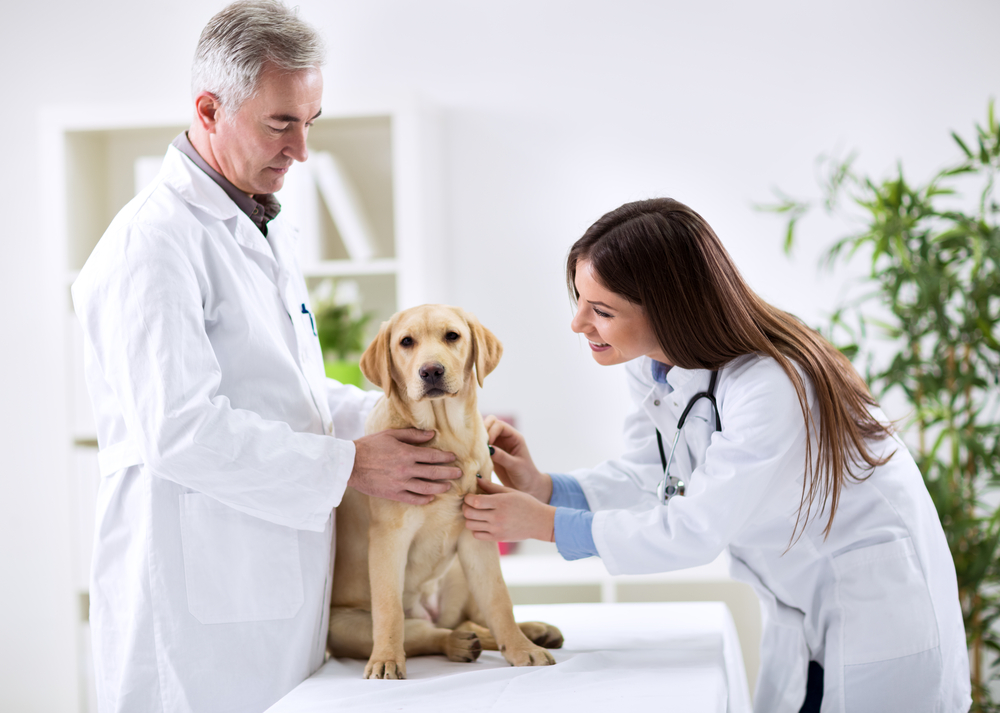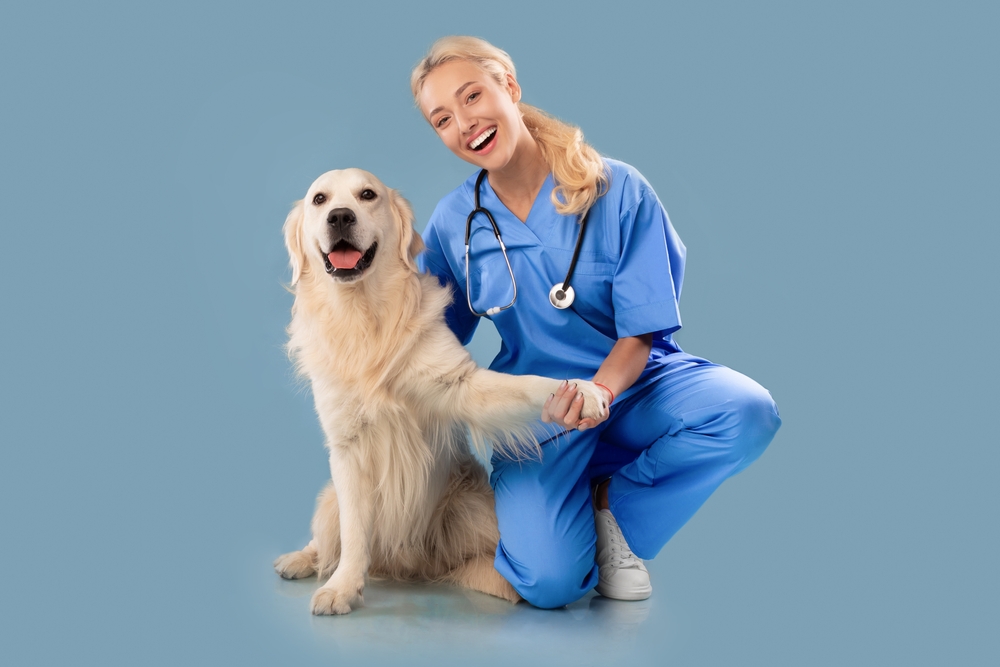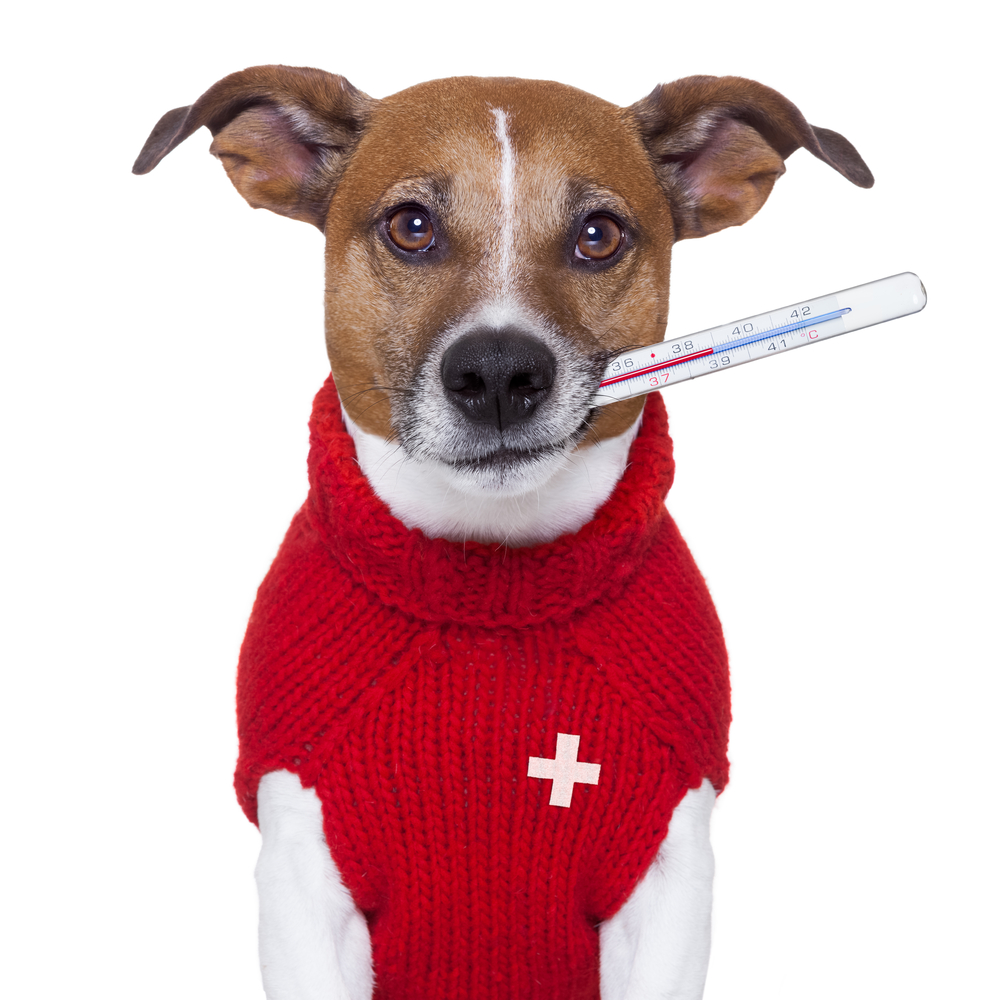
Did you know that dogs need health insurance? You don’t want to wait until your dog has health problems to enroll in doggie health insurance. If you do, the insurance company could deny your pet for “preexisting conditions.” In fact, the best time to invest in pet healthcare insurance is when your dog is a […]
Did you know that dogs need health insurance? You don’t want to wait until your dog has health problems to enroll in doggie health insurance. If you do, the insurance company could deny your pet for “preexisting conditions.”
In fact, the best time to invest in pet healthcare insurance is when your dog is a puppy, and the best time to research pet healthcare is now, before you get your first dog!
Petland Florida has put puppy healthcare information together for you, which includes the most common reasons why dogs need to see their vets throughout their lives. Let’s dive in!

As you probably know, there’s no scenario where your new puppy will slide through life never seeing a veterinarian. Puppies require vaccinations and boosters, as well as regular check ups, to make sure they’re healthy and developing. Each of these vet appointments will cost money.
But with puppy health insurance in place, the majority of these non-emergency vet visits can be greatly reduced in cost, or completely free, depending on the specific nature of the appointment and the puppy healthcare plan itself.
The average cost for a dog’s basic, routine check up can range anywhere from $50 to $250. Neutering or spaying a dog is rarely cheaper than $125 and could cost as much as $300. Vaccination, booster and other appointments to get “shots” also add up quite a bit. Even if your puppy never experiences an emergency, injury, or serious ailment, the “normal” reasons to see a vet can be quite expensive!
And we haven’t even addressed dental care or medications. The fact of the matter is that the average lifetime veterinarian costs of one dog are roughly $34,000. Think we’re kidding? We wish we were! Check out the annual costs below:
Veterinary Care up to $220
Vaccinations up to $165
Dental Care up to $680
Medications up to $680
WITHOUT INSURANCE this Totals $1,745 per year!
As far as Petland Florida is concerned, there’s no downside to getting healthcare insurance for your puppy. In fact, puppy healthcare insurance is as necessary as human healthcare insurance and car insurance. It’s just plain crazy not to get it!

Every puppy parent hopes that their fur baby never experiences an emergency that sends them to the veterinarian. Pet parents with fully grown dogs hope for the same. But the odds really aren’t in their favor. There are many reasons why a dog will have to go to the emergency vet, and while we sincerely hope that none of the following befall your dog, you should know about them nonetheless.
The most common reasons a dog will wind up in the emergency room include:
In addition to sudden emergencies, there are other reasons that a dog might need to see a vet immediately. These might not be category 5 emergencies, but they do go above and beyond the “normal check up” reason for scheduling a veterinarian appointment:
Let’s take a look at each and note the average cost of these vet visits if you don’t have puppy healthcare insurance.
Dogs are curious creatures. Thanks to their curiosity and fearless optimism, dogs try to eat all kinds of things. Trash, furniture, broken bottles, rocks, other dogs’ poop—the world is an exciting and mysterious place for dogs! How will they understand unfamiliar objects if they don’t eat them?
Well, a lot of these foreign objects, if your puppy or adult dog tries to eat them, will warrant a swift emergency trip to the vet. This can cost anywhere from $200 – $800 without insurance, especially if surgery is required to remove the foreign object.

You can keep the gate closed, train your puppy not to dart into the street or chase cars, and keep him on a short leash during every walk, and still tragedy could strike if your puppy or dog is in the wrong place at the wrong time. Every year, 1.2 million dogs are hit by cars, and most of them do not survive even though a great portion are rushed to the dog emergency room.
Even if a vet cannot save a dog that was hit by a car, the veterinarian’s office will still send a bill to the pet parents. Trying to save a dog’s life can be as expensive as thousands of dollars without insurance.
Though a less common reason for having to rush your dog to the emergency room, injuries from dog fights have been known to happen. Any dog parent can tell you that a simple trip to the dog park could get dramatic if untrained, aggressive dogs are present. Usually, the parents of aggressive dogs are blind to the issue and that’s how their dogs wind up biting other dogs at the park.
The injuries that could be sustained as a result of a dog being in a dog fight range from broken skin, infections, and broken bones. Typically, a dog injured from a dog fight will need immediate medical care, antibiotics, stitches, and a splint or cast if a bone has been broken. This can be as expensive as thousands of dollars without insurance.
Many human foods are toxic and poisonous to dogs. Depending on the specific food and the quantity of that food, your puppy may need to go to the emergency vet. For example, if the result of eating a poisonous food is severe vomiting and diarrhea. The human foods that can cause poisoning in puppies and dogs are:
Given that all of these food items can be found in any given household, there’s always a chance that your puppy could ingest one of these ingredients and need to see the vet right away.
Then, there are the truly and obviously poisonous substances in and around the house that will definitely trigger an emergency trip to the vet. These include all cleaning products, car antifreeze and other “liquids” that smell sweet. Even if you keep these in the garage, you’ll need to stowe them where your dog can’t smell or reach them.
More often than not, when a dog becomes poisoned by a serious hazard like antifreeze, it’s due to the pet parent’s vehicle “leaking.” At the end of the day, accidents like this can happen, which is just another reason to have healthcare insurance for your puppy.
Depending on the breed of your dog and their grooming needs, your dog may be more or less prone to skin and other infections. If your puppy or dog develops mange, for example, then a common risk is a skin infection. Of course, you should keep your dog bathed, groomed, and tidy, but even if you do, your dog could develop a skin infection associated with a scrape or cut that you didn’t realize happened.
Skin infections are typically treated with topical and injectable antibiotics, and other medications and ointments. This can really add up if your dog is prone to skin infections and has to be treated accordingly multiple times throughout his life.
Similar to humans, dogs can develop obesity and suffer from related health problems simply because they weigh too much. When a dog becomes obese and isn’t able to lose weight, they might require medication. Worse, they could strain their joints, ligaments, and bones, suffering an injury.
When it comes to obesity, the best treatment is prevention. Try not to feed your puppy too many snacks and when your puppy is an adult, keep an eye on his weight. Hold off on the snacks and feed him a smaller portion at mealtime if you notice he’s getting pudgy. Dogs who remain obese and develop subsequent health problems can really wrack up expensive vet bills, especially when you don’t have insurance.
Even if your dog remains in excellent health his entire life, the fact of the matter is that as he nears his twilight years at the end of his life, ailments associated with old age will present themselves. Ailments associated with getting older are also relevant to the dog’s breed. Some breeds are more prone to hip problems, for example.
If you researched the breed of your dog before you got him as a puppy, then you might have an idea of that breed’s common degenerative disorders and issues that will emerge in old age. The only question is, do you want to face those medical expenses without petcare insurance? We hope your answer is, “no.”
The good news for all you puppy and pet parents out there who are considering investing in pet health care insurance is that pet insurance really doesn’t cost a lot at all. You’ll get way more out of it than you’ll put in, guaranteed.